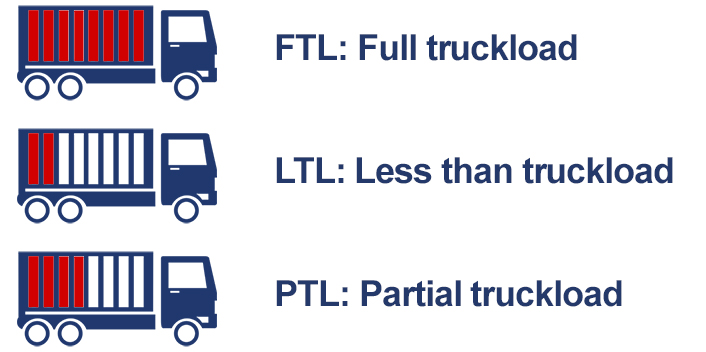Shipping something?
There’s a ton of options to choose from.
With over 19 years of experience in shipping, we can help.
This post will help you determine the differences between courier vs carrier shipping services.
Let’s start.
What is a courier service?
A courier service delivers small shipments.
These are shipments between 1 and 15 boxes, depending on weight, volume, and location.
It is usually a door-to-door method of delivery.
Some big-name courier services you might recognize are FedEx, UPS, and Purolator.

One great thing about courier services is that they are fast and efficient. One bad thing about courier services is the cost and size limit.
Most courier services have limits on shipment size. The bigger your shipment, the more you pay.
What is a carrier service?
A carrier service delivers large shipments.
What do we mean by a large shipment?
Anything that exceeds 150lbs.
Large shipments normally require transport trucks with specialized equipment and loading and unloading sites.
Carrier services are not as quick as courier services but are the most cost-effective to ship locally or cross country. There are different types of carrier services: air, ocean, and truck. We specialize in truck, but offer all 3 services.
Our industry loves acronyms. And we have a lot when it comes to trucking.
If you have a large amount of product to ship and plan to work with a carrier, here are three terms you should be aware of.
FTL or Full Truckload
A full truckload shipment is when a truck carries one dedicated shipment or is reserved for one shipment only.
FTL shipments are typically between 34,000 and 45,000 lbs.
FTL shipments are often delivered quicker because the truck makes no other pickups or drop-offs to or from its destination.
Product in FTL shipments is also less likely to get lost or damaged because there is limited handling with one dedicated truck and driver to the shipment.
LTL or Less than Truckload
A less than truckload shipment is when a freight truck carries more than one shipment.
LTL shipments are normally between 200 and 10,000 lbs.
For smaller shipments, less than truckload is usually cheaper because the use of a full truck is not necessary.
LTL is one of the most efficient, cost-effective and environmentally friendly ways to transport shipments locally or cross-country because you are sharing the cost of the truck’s cargo with other clients who have similar destinations.
You only pay for the space you need.
PTL or Partial Truckload
A partial truckload shipment is a shipment that fills about half of a truck, with the characteristics of a full truckload shipment.
PTL shipments fall between LTL and FTL sizes and weight.
Similar to FTL shipments, PTL shipments receive less handling than LTL shipments.
The key difference is the way product is transported versus its size or weight.
Courier vs carrier: which service will you choose?
If you have a small shipment, a courier service will do.
If you have a large shipment, work with a carrier company.
As a third-party logistics company, we work with the best carriers to manage, plan, and track your shipments. We build strong relationships with our carriers to always ensure your shipments are delivered successfully.

